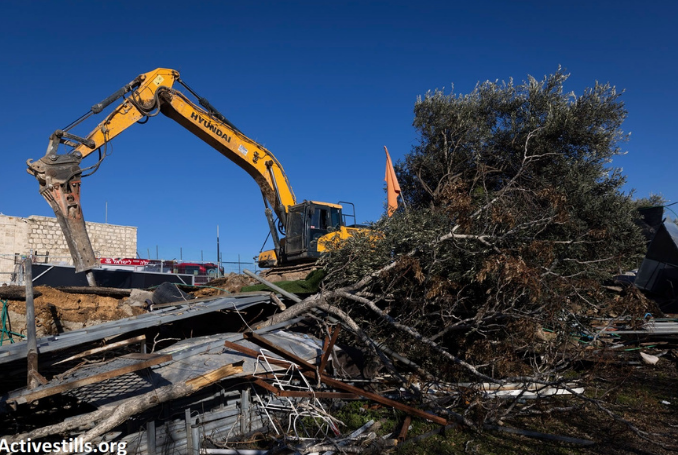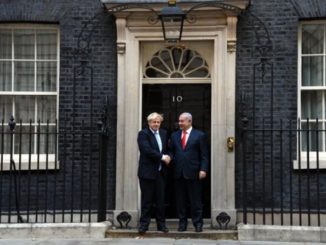
By Benay Blend
In 1948, the United States signed the Universal Declaration of Human Rights (UDHR), acknowledging satisfactory housing as part of the human right to an adequate standard of living. Nevertheless, soon after the recent end of the moratorium, evictions slowly began to rise.
What unites all settler-colonial states, but particularly the U.S. and Israel, is the commonality of structural racism. Indeed, the latest uprising in Palestine stemmed from efforts to evict residents of Sheikh Jarrah in order to replace them with Israeli settlers.
It is this structural racism on the part of the Zionist regime that lends the liberation struggle to its international, anti-colonial caste. Observes Onyesonwu Chatoyer, an organizer with the All-African People’s Revolutionary Party and the All-African Women’s Revolutionary Union, an editor with Hood Communist, also serving on the national committee of the Venceremos Brigade:
“From the very first days of its birth – born from a wave of African and Indigenous blood – the United States has built its empire on the backs of the masses of poor and colonized people inside and outside of its borders.”
According to the Eviction Lab, nearly one in four black renters lives in a county in which the black eviction rate is more than double the white eviction rate. Moreover, formal eviction proceedings are only a part of the problem. As Sophie Kasakove notes, many tenants are illegally locked out or their utilities are shut off, thus forcing them to leave their homes.
A case in point, drawn from a form-coming press release and Facebook posts: On February 5, 2022, Asantewaa (Mawusi) Nkrumah-Ture, a long-term community organizer in Philadelphia and anti-Zionist friend of Palestine, received a 30-day notice to vacate the home that she had been renting for several years. A short time later, some of the new owner’s family members started moving in while she is still in the house. Using a fraudulent lease with different language than the one she signed, the new owner declared that Nkrumah-Ture is now a month-to-month “housemate” confined to the bedroom rather than the entire house.
“We need stronger Good Cause Legislation in Philadelphia,” said Nkrumah-Ture. “Without it, landlords can sell their property, make a tremendous profit and push renters out using a move-in eviction, where a new tenant moves in while the current tenant is still there, using implied threats and other forms of intimidation to force the current tenant out. This is very dangerous and has a great potential for violence.”
In the United States, tenants like Nkrumah-Ture have access to the legal system, albeit that it often does not work in their favor. In Sheikh Jarrah, where Ramzy Baroud reports that “Israel uses ‘the law’ to ethnically cleanse Palestinians,” there is no such recourse to the courts. As Baroud points out, this most recent ethnic cleansing has a long history, justified “through a series of laws unique to Israel, laws that give a legal cover to outright theft and land robbery.”
Indeed, after a months-long physical and legal battle to avoid eviction, four Palestinian residents of Sheikh Jarrah received the Israeli court’s decision that they could stay in their homes for 15 years as “protected residents.” As such, they were required to pay the new Jewish “owners” a biennial sum of 2,400 shekels ($743).
There are major differences between illegal evictions in Jerusalem neighborhoods as a cover for ethnic cleansing and rising evictions in the States. Nevertheless, what unites them is communal resistance to what Chatoyer describes as settler-colonial violence.
From Gaza to Jerusalem and the West Bank, Palestinians participated in what came to be known as the Unity Intifada. “[This unity] eclipses Fatah and Hamas and all the rest,” wrote Baroud, “because without a united people there can be no meaningful resistance, no vision for liberation, no struggle for justice to be won.”
Moreover, Baroud contends that the uprising that was instigated by the ethnic cleansing of Sheikh Jarrah was “but a microcosm” of a larger issue. The ongoing atrocities in Palestine date back to 1948 and continue to this day, but so does the resistance.
In Philadelphia, friends responded to Nkrumah-Ture’s call on social media for support in the face of eviction by intimidation. On February 7th she wrote: “If you want to witness a possible illegal move in/eviction, come to my house tomorrow, Mon. Feb. 7.” A group of supporters has been present since Mon. February 7th and will continue to support her as she faces move-out intimidation.
As in Palestine, the response was communal. Members of the Poor People’s Army and friends who represented various activist organizations arrived to ensure Nkrumah-Ture’s safety. Another commonality is that she represents only one case study of infringement on the housing rights of people all over the country, a crisis that looms larger as landlords seek to obtain higher rents in a booming housing and rental market.
In Palestine, the motive behind evictions is ethnic cleansing; in the U.S. it is disregard for what are considered disposable people whose rights matter less in a capitalist economy than those who reap high profits. What unites them is global resistance movements to settler-colonial states.
This kind of solidarity is crucial to Palestine’s liberation. While Palestinians have proved that they are quite capable of saving themselves, collaboration with the global South, which includes Black Americans, is an important step in the liberation struggle towards freedom.

– Benay Blend earned her doctorate in American Studies from the University of New Mexico. Her scholarly works include Douglas Vakoch and Sam Mickey, Eds. (2017), “’Neither Homeland Nor Exile are Words’: ‘Situated Knowledge’ in the Works of Palestinian and Native American Writers”. She contributed this article to The Palestine Chronicle.







